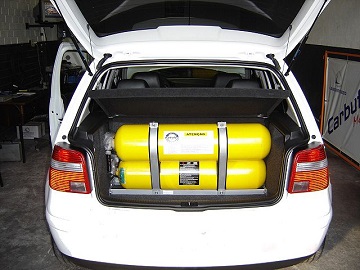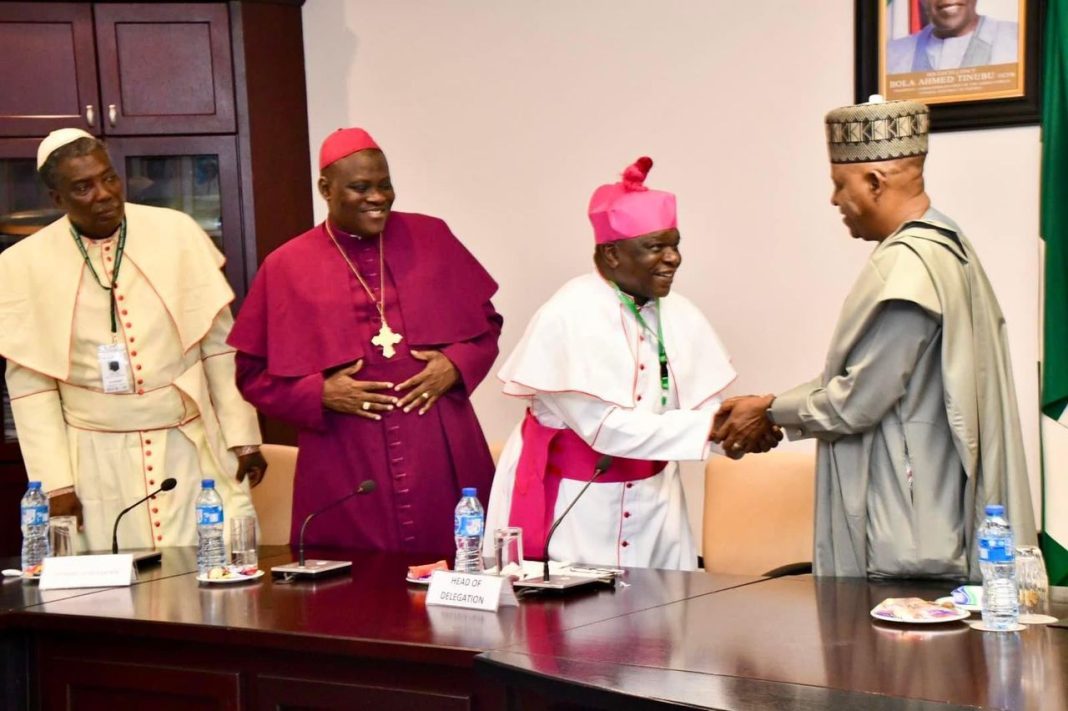In a commencement speech on the 26th of May 2011, at Harvard University, the former president of Liberia – Ellen Johnson Sirleaf admonished the Harvard Graduating class of 2011 with the following: “I urge you to be fearless about the future. Just because something has not been done yet, doesn’t mean it can’t be. The size of your dreams must always exceed your current capacity to achieve them. If your dreams do not scare you, they are not big enough.”
It is from the lens of being fearless about our collective future that Mr. President on May 29, 2023 at the Eagle square announced the end of fuel subsidy which subsequently ushered in the initiative and drive for the adoption of CNG as an alternative fuel.
It is pertinent to examine critical concerns raised by well meaning patriotic former government officials such as those raised in the article published in the Daily Trust newspaper of May 18th 2024.
Babachir Lawal’s argument against the feasibility of Compressed Natural Gas (CNG) vehicles in Nigeria is premised on the lack of infrastructure and perceived government inefficiency. While his concerns are valid, they reflect a short-term perspective rather than considering the long-term benefits and potential solutions.
Lawal argues that CNG vehicles cannot work without widespread refueling infrastructure. This is true; however, infrastructural development is a gradual process. The government’s directive to convert vehicles to CNG is a step towards reducing dependency on imported fuel and utilizing Nigeria’s abundant natural gas reserves. By prioritizing infrastructure development, the government can create a sustainable CNG network. The success of such projects in other countries demonstrates that Nigeria can achieve this with proper planning and investment.
To further counter this argument of infrastructure, using the example of Adamawa, according to the Adamawa office of the Nigeria Midstream and Downstream Petroleum Regulatory Authority (NMDPRA), in 2022, it renewed the operation licenses of about 85 percent of the existing 530 petroleum stations in the state. Meaning there were 425 petrol stations serving an equivalent 2022 population of 4.9 million people. Would you argue that is the appropriate infrastructure? Lack of infrastructure represents an investment opportunity for the private sector, and with the influx of investments into CNG since last year when the President blew the whistle and the package of incentives the sector have received including duty and tax waiver, concessionary pricing and mandate of Purchase by the FEC, there is no better time to invest in Compressed Natural Gas (CNG).
The economic benefits of CNG for transportation are significant. CNG is cheaper than petrol and diesel, reducing operational costs for vehicles. For a country grappling with high fuel costs, this transition could alleviate financial pressure on both the government and consumers. Additionally, CNG is cleaner than other fossil fuels, contributing to a reduction in greenhouse gas emissions. This aligns with global environmental goals and can help Nigeria meet its climate commitments. Natural gas supply especially non-associated is reliable and can be harnessed from the billions of cubic feet of gas flared annually, if we plan and put our mind and heart to it. Gas vehicles are also more reliable, they require less maintenance and overall benefit the user economically.
Former SGF Lawal mentions the need for a comprehensive implementation strategy, which is essential. The government has outlined a phased and systematic approach, starting with major urban centers and gradually expanding to rural areas as indicated in its roadmap. The professionalism of the Presidential CNG Initiative’s team must be noted; the energy the Dr Zacch Adedeji team has brought to the task has been astounding propelled by a young and savvy management team.
Countries like India and Pakistan have successfully integrated CNG into their transportation systems. These countries did not have a built out infrastructure when the drive and push for adoption of CNG began. Yet we can review the numbers of ‘having dreams that exceed our current capacity to achieve them’
Pakistan: Pakistan has also embraced CNG, with over 3.5 million CNG vehicles and around 3,000 refueling stations. The shift to CNG was motivated by the need to cut fuel import bills and reduce environmental impact. The government provided subsidies and incentives to encourage the transition which is what the Nigerian government is doing.
Iran: Iran has the world’s largest fleet of CNG vehicles, with more than 4 million vehicles. The country leveraged its vast natural gas reserves to reduce gasoline consumption. Government initiatives, including subsidies for CNG conversions have been crucial to this success. The case of utilizing Nigeria’s gas similarly is crucial.
Brazil: Brazil has a substantial number of CNG vehicles, particularly in major cities like Rio de Janeiro and São Paulo. The adoption of CNG is part of Brazil’s broader strategy to diversify its energy sources and reduce dependency on oil. I personally witnessed this as far back as 2014 in Rio de Janeiro.
Thailand: Thailand has embraced CNG as part of its alternative energy strategy. The government supports the development of CNG infrastructure and offers incentives for vehicle conversions. This has led to a growing number of CNG vehicles and refueling stations across the country. The key here is support which the Nigerian government is providing.
The successful adoption of CNG vehicles in these countries highlights several critical factors: We cannot be fearful of a future of CNG that other nations have demonstrated capacity and capabilities. Nigeria is developing a comprehensive strategy to successfully integrate CNG vehicles into its transportation system and its in its early days. Our dreams of CNG must exceed our current capacity to achieve, for this is the only way to move our Nation forward.
CNG of course won’t stand alone. There is limited CNG infrastructure to the North, but that is already being solved by the incredible investment by NNPCL in Ajaokuta-Kaduna-Kano Gas Pipeline that will move pipe gas up North, and several planned Mini-LNG and C-LNG projects that form part of a planned virtual pipeline network by the Presidential CNG Initiative with Kwara, Nasarawa, FCT, Lokoja and Kaduna already planned for activation in few weeks. The PCNGI also engaged stakeholders and disclosed that it will extend EV Buses and Infra to far out locations through captive locations like university campuses. This is good for Nigeria.
While Babachir Lawal raises important points, dismissing the potential of CNG vehicles without considering long-term strategies and benefits is shortsighted. With careful planning, infrastructure development, and public-private collaboration, CNG can significantly benefit Nigeria’s economy and environment. The government must commit to this transition, ensuring sustainable and inclusive growth for the nation.





